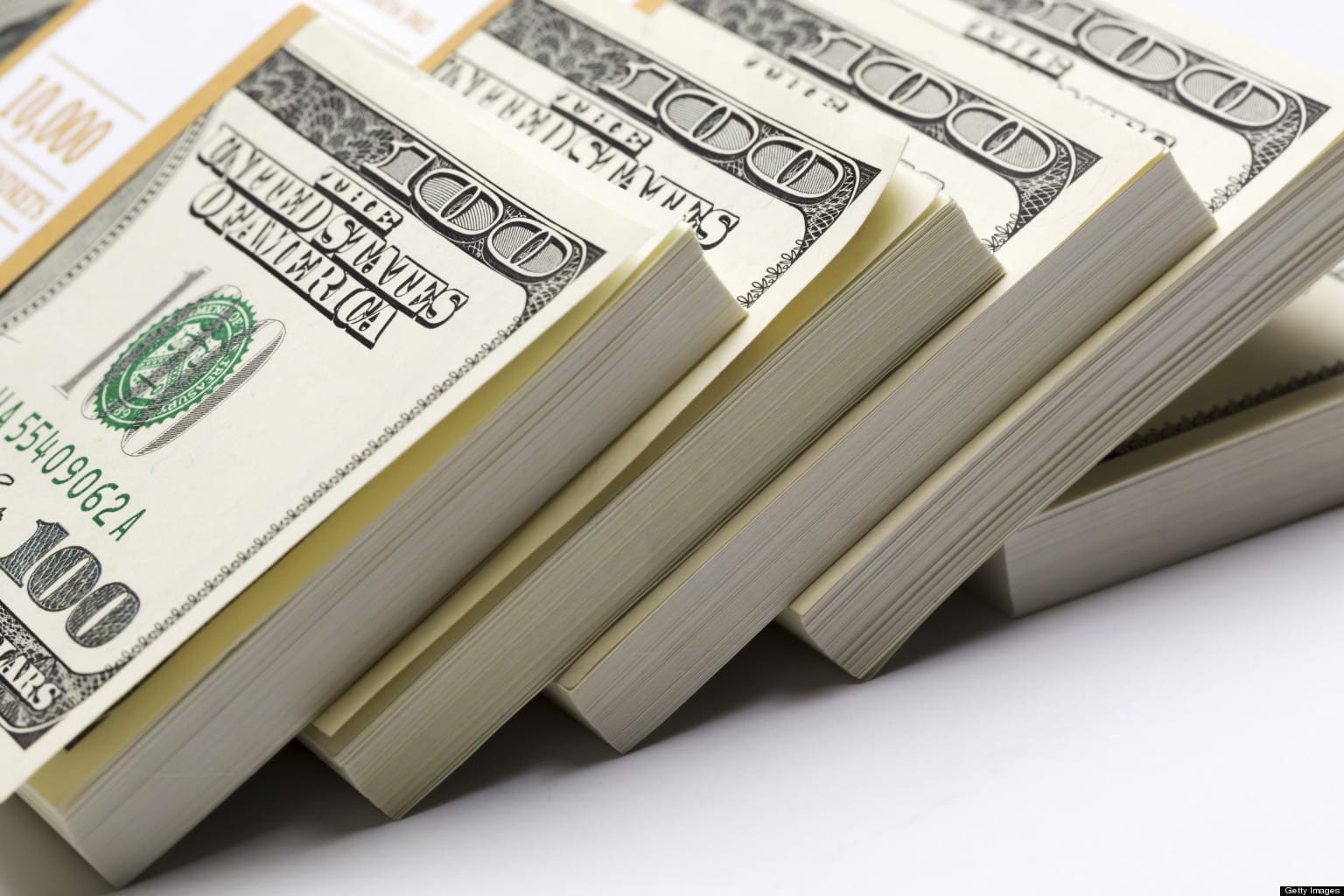Nigeria's recent tentative steps to free up its naira currency, particularly via a new trading window, have gone down well with some adventurous stock and bond investors who are cautiously returning to the markets they fled two years ago.
Once considered one of the most promising emerging markets, Nigeria was hammered when it introduced draconian foreign exchange restrictions to counter the effects of the 2014 oil price crash.
These will take years to unwind, some analysts fear, while others are concerned the new trading facility could come under pressure if oil prices were to take another tumble, or trade through it could slow if Nigeria's currency reserves run low.
The much-criticised move starved the economy of dollars, throttled foreign investment and plunged Africa's largest economy into recession for the first time in more than 25 years.
But authorities have since tried to normalise the currency market and alleviate dollar shortages, most recently via the "Investors & Exporters FX Window", which allows investors and traders to swap nairas for dollars at market-determined rates.
The new window adds to a confusing array of exchange rates. But it does seem to be succeeding in luring back some foreign funds, especially as the economy should return to growth soon and inflation is finally slowing.
"It is a very good thing. Obviously having multiple exchange rates is not an optimum situation yet, but it is moving towards a more realistic exchange rate," said Oliver Weeks, economist at hedge fund Emso Asset Management. "This certainly makes the country more interesting."
Under the new system, in place since April, the opening and closing naira/dollar rates are determined by a poll of authorised bank dealers. The NAFEX or Nigerian Autonomous Foreign Exchange Rate Fixing is set around noon and serves as a benchmark for derivatives such as forwards and futures.
Weeks said Emso has used the new mechanism successfully several times in the past six weeks.
Since the window's launch, foreigners have swapped some $2.2 billion through it, according to the central bank although London-based Exotix Capital said many of the deals were likely small as some people test the new system.
Data from Lagos-based FMDQ OTC Securities Exchange, which hosts the window, shows the naira NAFEX fix at nearly 369 per dollar, well below the official 305 rate the central bank had previously clung to.
Sola David-Borha, Chief Executive Africa Regions at Standard Bank - one of the authorised dealers in the new window - said the window was working "reasonably well" and there was definitely liquidity.
"But the most important thing is that the central bank is willing to engage, and there is constant engagement now with bankers, investors and other stakeholders," David-Borha said.
STOCKS RACE UP
The Lagos stock market has climbed nearly a third in the past six weeks and trading volumes have more than doubled. Local bonds, some paying yields over 20 percent are also luring more foreign investors, local traders said.
The new window has re-opened the doors to the carry trade in naira - one of the few such opportunities on the continent outside South Africa, said Yvette Babb, executive director for sub-Saharan Africa research and strategy at J.P Morgan.
Babb estimates foreign portfolio outflows from Nigeria were around $6 billion last year, but added:
"Depressed equity prices and high local currency yields in combination with the exchange rate adjustment is likely to give rise to further foreign portfolio inflows."
But NAFEX still has plenty of critics. Above all, investors are worried by authorities' failure to guarantee that the window will remain available in future, especially in the event of another sharp decline in oil prices.
Secondly, the central bank sold more than $4 billion from February to May to narrow the gap between the official and black-market exchange rates. But with reserves of just over $30 billion, it is doubtful it can keep selling at such a pace.
"In the case of oil production coming down again, it is not clear that the currency will adjust and you could go back to a position where the market goes completely illiquid again," Emso's Weeks said.
And those betting that NAFEX heralds a swift and full-fledged naira liberalisation may be disappointed.
Although an exporter of oil, Nigeria's reliance on imports for fuels such as gasoline is a drain on foreign exchange.
The government has pledged to end its reliance on oil product imports by 2019 - and the two are connected, Babb said.
"Markets are expecting more exchange rate liberalization in the next six months, but policymakers seem to be seeking convergence by 2019," Babb added.
So more conservative investors are holding back. For instance Guy Tousso, portfolio manager for emerging markets fixed income at BNP Paribas Asset Management, is waiting for a functioning naira market to return but says it is inevitable.
"They are getting there, but it is a slow pace in Nigeria because the social impact will be negative. But I don't think they have any choice."
© Reuters News
Friday, 23 June 2017
CURRENCY: Investors cheer Nigeria currency shift, want more
Subscribe to:
Post Comments (Atom)







0 comments:
Post a Comment